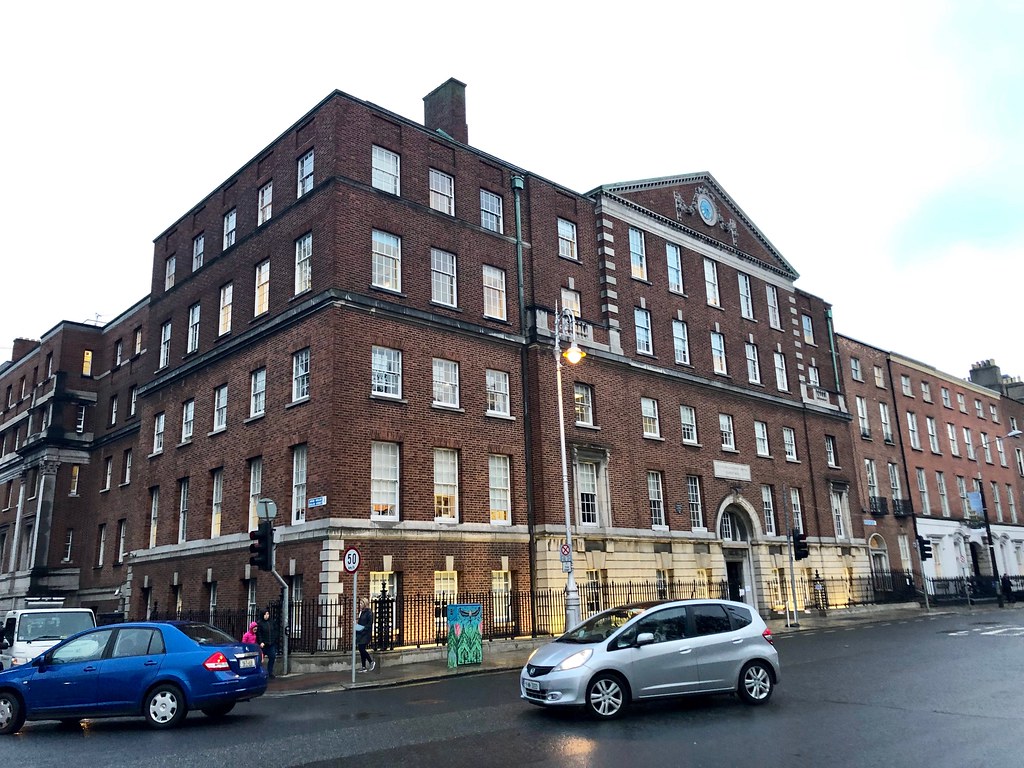The National Maternity Hospital is celebrating the 25th anniversary of its Community Midwifery Service.
With a philosophy that pregnancy and birth are a normal life event, the hospital’s Community Midwifery Service is dedicated to providing choice for women within the South Dublin and Wicklow catchment area who wish to avail of midwifery-led care in their own locality.
The National Maternity Hospital was the first maternity hospital in the country to establish and sustain a community-based maternity service offering the full range of midwifery-led care, including homebirth.
The services provided by the Community Midwifery team have evolved and expanded over time to respond to the needs of women. They include the Domino and Homebirth Service, the Community Satellite Clinics and the Early Transfer Home Service. The team consists of experienced midwives, with specialities in lactation, prescribing, examination of the new-born, and point of care ultrasound.
Since its establishment in 1999, the Community Midwifery Service has provided midwifery care for more than 35,000 women, both during pregnancy and post-birth. As part of this, the Domino and Homebirth Service has cared for more than 10,000 women through pregnancy, labour and into the postnatal period, as well as supporting more than 800 homebirths during this period.
The Domino and Homebirth Service offers eligible women the opportunity to attend community antenatal clinics in their own local area. Women can also choose to have a home birth (if suitable), attended by experienced National Maternity Hospital Domino midwives. Women who give birth in hospital can opt to go home as early as 6 hours post birth if mum and baby are well, with Domino midwives providing postnatal care in the new mother’s home for up to 10 days after the birth. The service operates 24 hours a day, 365 days a year.
In addition, The National Maternity Hospital Community Midwifery Service also offers convenient Antenatal Satellite Clinics in the community to eligible women – with obstetric consultant input when needed. Women give birth in The National Maternity Hospital and an Early Transfer Home Service, between 12 to 36 hours after birth is offered, so that eligible women can continue their postnatal care under the Community Midwifery Team in the comfort of their own home.
Director of Midwifery and Nursing at The National Maternity Hospital, Mary Brosnan commented: “The National Maternity Hospital is very proud to celebrate 25 years of midwifery led care in the community delivered by our exceptional team of passionate and dedicated Community Midwives. Midwifery led care has an extremely positive impact on the pregnancy and birth experience of women. The role of the midwife in women’s health and the role they play in women’s psychological and physical maternity journey is critical. The National Maternity Hospital is delighted to celebrate the enormous contribution of our committed and innovative Community Midwifery team. We acknowledge the service this National Maternity Hospital team have nurtured and widely expanded on since 1999 with the goal of providing choice and continuity of care to women within their own communities.”
To mark the 25th anniversary, The National Maternity Hospital will bring together service users past and present as well as those who have been involved in the hospital’s community care over the last 25 years.
Minister for Health, Stephen Donnelly, TD, will also be in attendance. Speaking ahead of the event, he said: “It gives me great pleasure to celebrate the 25th Anniversary of the National Maternity Hospital’s Community Midwifery Services.
“Progressing women’s health continues to be a top priority for me and for this Government. I have overseen unprecedented levels of funding in women’s health initiatives across the country, including at the National Maternity Hospital.
“The National Maternity Strategy prioritises choice for women and access to midwife-led care. I recognise the important role the National Maternity Hospital has played in progressing the strategy’s supported model of care.
“This progress and innovation in care can only be brought about through listening to and supporting women. This is something that I remain committed to doing.”
